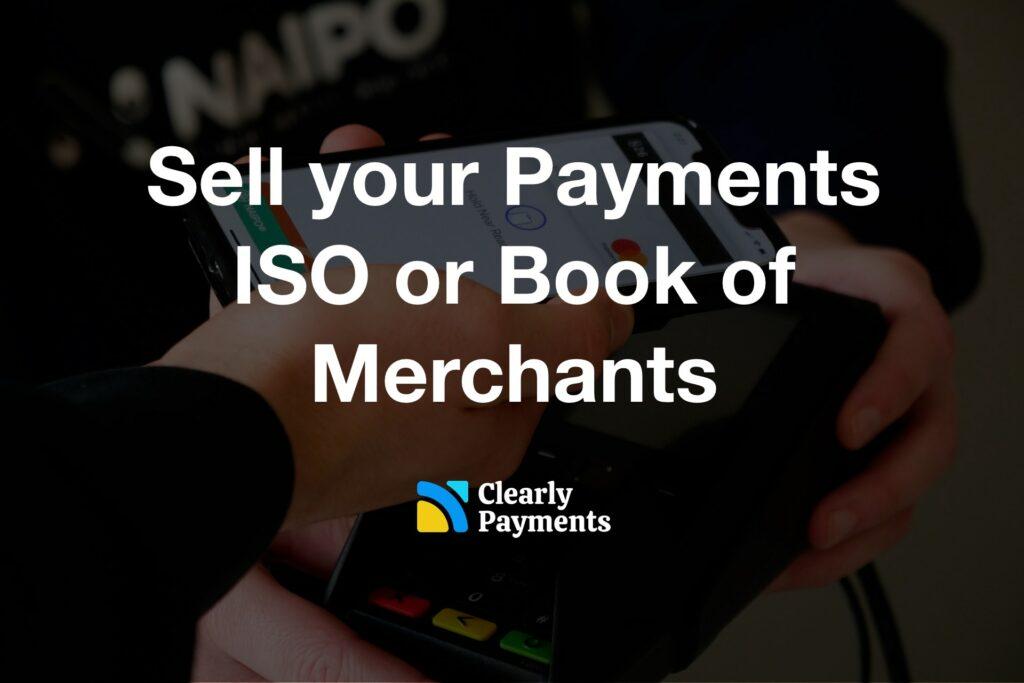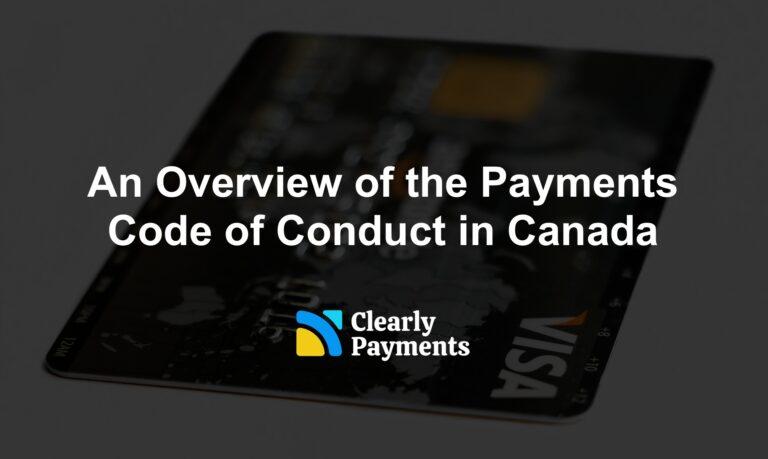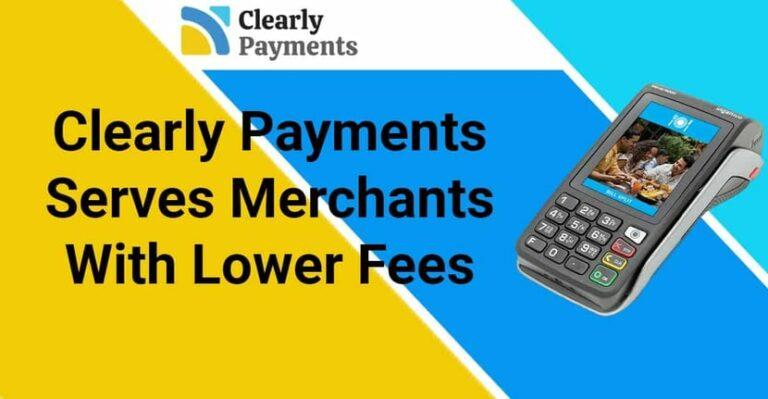If you’re the owner of a payments business (i.e. ISO), you may be wondering if it’s the right time to sell. While the decision to sell your business is a personal one, there are a number of reasons why now may be the perfect time to do so.
One of the most popular types of payment businesses is an ISO (Independent Sales Organization). Sometimes they are called a book of merchants. Luckily, it is relatively simple to sell your ISO, and TCM might be your friendly buyer. This article explains what ISOs are and the process to sell them.
When is the best time to sell your ISO
The payments industry is growing rapidly. With the rise of e-commerce and mobile payments, more and more people are turning to digital payments to make transactions. This trend is only going to continue, which means that there is a lot of potential for growth in the payments space.
Second, the payments industry is becoming increasingly competitive. New players are entering the market all the time, and it can be difficult to keep up with the latest trends and technologies. By selling your business now, you’ll be able to take advantage of the current demand and get a good price for your company.
Finally, selling your payments business can give you the opportunity to move on to new ventures. Whether you want to retire, start a new business, or pursue other interests, selling your payments business can give you the financial freedom to do so.
What is an ISO in payments?
In the context of payments, ISO stands for Independent Sales Organization. An ISO is an organization that partners with acquirers to sell payment services and products to merchants.
ISOs play a crucial role in the payment processing ecosystem. They act as intermediaries between merchants and acquiring banks. ISOs typically work with businesses that require payment processing services for accepting credit card payments.
ISOs come in all shapes and sizes from a 1-person company where the owner sells payments services as a side gig all the way to a multi-billion dollar corporation that sells payment processing across the globe. ISOs can be some of the most innovative providers in payments that develop proprietary payment software for merchants.
The main functions of an ISO in payments include:
Merchant Acquisition: ISOs actively seek out and acquire new merchant accounts by pitching the benefits of payment processing services offered by their partnering acquirers. They help merchants understand the features, fees, and benefits of different payment processing solutions.
Sales and Marketing: ISOs develop sales and marketing strategies to promote payment processing services to potential merchants. This includes advertising, lead generation, and establishing partnerships with other businesses or organizations to increase their reach.
Application Processing: ISOs assist merchants in completing the application process for merchant accounts. They collect the necessary information, help merchants fill out applications, and ensure the submission of required documents.
Underwriting: ISOs may perform preliminary underwriting or risk assessment of merchant applications before submitting them to the payment processor or acquiring bank. They evaluate the merchant’s business type, financial stability, and risk factors to determine the likelihood of approval. Even though some ISOs conduct the underwriting (i.e. takes the risk), most of the time, acquirers are the ones that actually underwrite.
Training and Support: ISOs provide training and support to merchants on how to use payment processing equipment, software, and systems. They offer ongoing assistance and troubleshooting to ensure smooth payment transactions.
Software and Hardware Development: Larger, more sophisticated, or well-capitalized ISOs develop proprietary payment software which they sell to merchants. This may include software like mobile payments or payment gateways.
ISOs are regulated by card networks (such as Visa, Mastercard, American Express) and must comply with their rules and regulations. They play a vital role in expanding the reach of payment processing services and facilitating secure and efficient transactions for merchants.
The process to sell your ISO
If you have an ISO book of merchants and you’re looking to sell it, here are some steps you can follow to maximize your chances of success:
Identify your target market: Determine who would be interested in purchasing your ISO book of merchants. This could include financial institutions, payment processors, independent sales organizations, or individuals involved in the payments industry.
Research potential buyers: Conduct thorough research to find potential buyers who might be interested in acquiring your ISO book of merchants. Look for companies or individuals who have a history of purchasing similar products or have expressed interest in acquiring merchant lists.
Prepare your sales pitch: Develop a compelling sales pitch that highlights the value and benefits of your ISO book of merchants. Emphasize the quality and relevance of the merchants included, any unique features or advantages, and how it can benefit the potential buyer’s business.
Establish credibility: Build trust and establish your credibility by providing accurate and detailed information about the ISO book of merchants. Highlight any certifications, industry affiliations, or positive customer testimonials that can support your claims.
Offer competitive pricing: Determine a fair and competitive price for your ISO book of merchants. Consider factors such as the quality and size of the list, the relevance of the included merchants, and the market demand. Be open to negotiation while ensuring that the price reflects the value you’re offering.
Provide sample data or previews: Consider providing potential buyers with a sample of the ISO book of merchants or allowing them to preview a portion of the list. This can help them assess the quality and relevance of the included merchants, increasing their confidence in making a purchase.
Secure a legal agreement: Once you have found a buyer and agreed upon the terms, work with legal professionals to draft a comprehensive sales agreement that protects both parties’ interests. This agreement should outline the scope of the sale, the transfer of ownership, any warranties or guarantees, and confidentiality clauses.
Sometimes, it might be worth it to consult with legal professionals to ensure you comply with any applicable laws and regulations, especially regarding the sale of merchant data.
The valuation of a payments ISO
The value of a payments ISO can vary significantly depending on various factors. Valuing an ISO typically involves assessing its revenue potential, customer base, profitability, growth prospects, and retention rate.
The valuation is generally calculated as a multiple of either the top-line revenue or the bottom-line profit. Looking at the top-line revenue, the range can be quite wide. The typical value of a book of merchants might be valued at 1 times (1x) to 2 time (2x) the annual revenue. However, a high value book of merchants might be 2x to 3x the annual revenue. This can range based on a number of factors, including the following.
The amount revenue generated by the ISO is a key factor in determining its value. The higher the revenue, the more valuable the ISO is likely to be. Profitability, including factors such as margins and growth rate, also plays a role in the valuation.
The size and quality of the ISO’s customer base are crucial in determining its value. An ISO with a large and diverse portfolio of merchants, particularly those with stable and long-term contracts, is typically more valuable. The quality of the customer base, including factors such as their industry, risk profile, and transaction volume, can also impact the ISO’s value.
The technology and infrastructure supporting the ISO’s operations can affect its value. A robust and scalable infrastructure, including efficient payment processing systems and advanced technology solutions, can contribute to a higher valuation. If proprietary technology has been developed and is supporting the merchants, this can have a big impact on the ISO valuation.
The potential for future growth is an important consideration in valuing an ISO. Factors such as market trends, the ISO’s ability to attract new merchants, and its potential for expanding into new markets or offering additional services can increase its value.
The overall state of the payments industry and market conditions can influence the value of an ISO. If the industry is experiencing growth and favorable conditions, the ISO may be more valuable. Conversely, factors such as increased competition or regulatory changes can impact the value.
The ISO’s reputation within the payments industry, its brand recognition, and customer satisfaction levels can influence its value. A strong brand and positive reputation may attract more potential buyers and command a higher price.
It’s important to note that valuing an ISO is a complex process, and it is recommended to engage the services of professionals such as business appraisers or financial advisors with expertise in the payments industry to determine the specific value of a particular ISO.
Selling your ISO to TCM
When it comes to a reliable and trustworthy partner to sell your ISO, TCM is a top contender. With its impressive reputation, industry expertise, and commitment to excellence, TCM offers a compelling proposition for ISOs looking to sell their valuable assets. We make selling your ISO simple.
TCM has established a stellar reputation within the payments industry. With years of experience and a track record of success, they have built a solid foundation of trust and reliability. Their satisfied clients and positive testimonials serve as a testament to their commitment to excellence and professionalism.
TCM understands the value of your ISO book and offers competitive pricing tailored to market conditions. Their transparent and fair approach ensures that you receive a reasonable and mutually beneficial deal. By analyzing market trends and leveraging their expertise, TCM can provide an attractive offer that reflects the true worth of your ISO book.
TCM has built a reputation as being the friendliest payment processor on Earth. We make the process simple and stress free. We can customize the sales process and transition for you to fit your specific situation. Reach out to TCM today to sell your ISO.
Sell your ISO to TCM today
- A leader in payment processing
- Friendly staff and sales process
- Fair and competitive pricing
- Customized transition process




